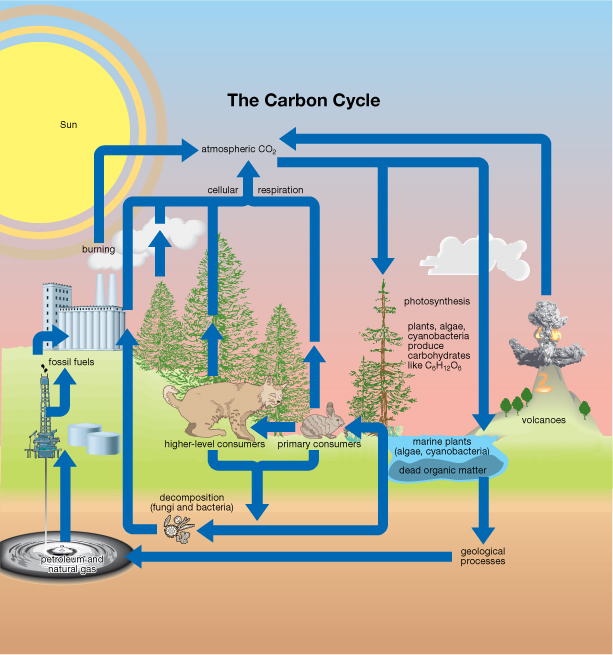Module 8 Intro
1. Module 8 Intro
1.33. Page 4
Module 8—Circulation, Immunity, and Excretion
 Reflect and Connect: A Creative Representation of the Immune System
Reflect and Connect: A Creative Representation of the Immune System
Scientists often create simulations or models to illustrate how something works. Models and simulations are useful tools in visualizing biological processes. A model is a logical representation of a phenomena or process. The following graphic is an example of such a model.

Any of the animations you have viewed in this course can be used as an example of a simulation.
Based on your current knowledge and further research of the lymphatic system and immunity, you will design a model or simulation of the functioning of the main components of the human immune system. You will model the body’s immune response from the first line of defence to the third line of defence and identify all cells and components involved in an immune response.
Your presentation may be in any format suitable such as illustrations, animations, video, or a slide show.
Go to your Lesson 5 Assignment for further instructions.
 Reflect on the Big Picture
Reflect on the Big Picture
 Discuss
Discuss

© VectorZilla/shutterstock
A minority of individuals may have allergies to peanuts or other foods. Should students be restricted from bringing these food items into the school lunchroom? Post your argument in the discussion area. What do other students have to say?
 Going Beyond
Going Beyond
What is the relationship between immunity and breast feeding? Conduct web research to see what you can find out. Record your findings in your course folder.
 Module 8: Lesson 5 Assignment
Module 8: Lesson 5 Assignment
Remember to submit the Assignment answers to your teacher as part of your Module 8: Lesson 5 Assignment.